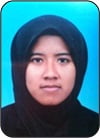Critical Reflections on the Experiences of Male in Early Childhood Education in Malaysia
Abstract
ABSTRACT: The percentage of male in field like Early Childhood Education (ECE) is low compared to other manly job. But, recently, the position of male in preschool education has been a trending topic of research among academic societies. The ways through which government attempt to encourage or maximized the incidence of male students taking Early Childhood Education course are founded on a thorough understanding of the reasons why they choose the course and the challenges. Employing a number of semi-structured interviews, the present qualitative study endeavours to seek Early Childhood Education students’ viewpoints on the reasons, challenges, and views of taking this course. Researchers used two male students, who fit the criteria chosen through purposive sampling. Based on the findings of the study, themes found for the reasons: interest, conditional support, demands, and basic knowledge; followed by themes for the challenges faced: normal, affect performance, family, and feedback differences in gender; and themes for their perception on Early Childhood Education course: business and attitude. The implications of these findings can be helpful for academic societies seeking to prioritize the role of male in Early Childhood Education setting in Malaysia.
KEY WORD: Male, early childhood, reason, challenge, attitude, academic societies, and role of male in early childhood education.
RINGKASAN: “Refleksi Kritikal mengenai Pengalaman Lelaki dalam Pendidikan Awal Kanak-kanak di Malaysia”. Peratusan lelaki dalam bidang Pendidikan Awal Kanak-kanak adalah rendah bila dibandingkan dengan bidang kerjaya lainnya. Tetapi, baru-baru ini, kedudukan lelaki di dalam pendidikan prasekolah adalah satu topik yang hangat dalam penyelidikan di kalangan masyarakat akademik. Pihak kerajaan telah berusaha untuk menggalakkan atau memaksimakan penglibatan pelajar lelaki untuk mengambil kursus Pendidikan Awal Kanak-kanak melalui kefahaman yang mendalam tentang sebab-sebab pemilihan kursus dan cabaran. Menggunakan beberapa temubual separa berstruktur, kajian kualitatif ini telah mendapatkan pandangan pelajar Pendidikan Awal Kanak-kanak mengenai sebab-sebab, cabaran, dan pandangan mereka untuk mengikuti kursus ini. Penyelidik menggunakan dua pelajar lelaki, yang sesuai dengan kriteria yang dipilih melalui persampelan bertujuan. Berdasarkan dapatan kajian ini, tema dijumpai untuk sebab ialah: faedah, sokongan bersyarat, keperluan, dan pengetahuan asas; kemudian diikuti dengan tema untuk cabaran yang dihadapi: normal, menjejaskan prestasi, keluarga, dan perbezaan maklum balas dalam jantina; serta tema untuk persepsi mereka pada kursus Pendidikan Awal Kanak-kanak: perniagaan dan sikap. Implikasi dapatan kajian diharapkan dapat membantu para ahli akademik untuk mengutamakan peranan lelaki dalam suasana Pendidikan Awal Kanak-kanak di Malaysia.
KATA KUNCI: Lelaki, pendidikan awal kanak-kanak, sebab-sebab, cabaran, pandangan, masyarakat akademik, dan peranan lelaki dalam pendidikan awal kanak-kanak.



About the Authors: Az Athirah binti Zubairi is a Lecturer at the Kulliyah of Education IIUM (International Islamic University of Malaysia) in Gombak, Kuala Lumpur, Malaysia. Siti Salwa Md Sawari and Mohd Al ’Ikhsan Ghazali are the Lecturers at the Faculty of Islamic Civilization UTM (Malaysia University of Technology), UTM Campus Kuala Lumpur, Malaysia. For academic interests, the authors can be contacted via e-mails at: az_athirah@yahoo.com, salwa.sawari@gmail.com and alikhsan@ic.utm.my
How to cite this article? Athirah binti Zubairi, Az, Siti Salwa Md Sawari & Mohd Al ’Ikhsan Ghazali. (2015). “Critical Reflections on the Experiences of Male in Early Childhood Education in Malaysia” in ATIKAN: Jurnal Kajian Pendidikan, Vol.5(1) June, pp.115-124. Bandung, Indonesia: Minda Masagi Press and FPOK UPI Bandung, ISSN 2088-1290.
Chronicle of the article: Accepted (March 15, 2015); Revised (May 9, 2015); and Published (June 30, 2015).
Keywords
Full Text:
PDFReferences
Baris, B. (2010). “Female Preschool Teachers’ Attitude toward Male Preschool Teachers While Hiring Job” in Middle Eastern & African Journal of Educational Research, 3, pp.107-112.
Cech, E.A. (2013). “The Rise of Women: The Growing Gender Gap in Education and What it Means for American Schools by Thomas A. DiPrete and Claudia Buchmann” in American Journal of Sociology, 119(6), pp.1761-1763.
Cooney, M.H. & M. Bittner. (2001). “Men in Early Childhood Education: Their Emergent Issues” in Early Childhood Education Journal, 29(2), pp.7-82.
Denzin, N.K. & Y. Lincoln [eds]. (2003). The Landscape of Qualitative Research: Theories and Issues. London: Sage, second edition.
Diren, A. & T. Besnard. (2010). “Male Students in Early Childhood Education Techniques: Can We Help Them to Complete Their Program of Studies” in Pédagogie Collégiale, 23, pp.1-7.
DoL [Department of Labour]. (2005). Labour Force Statistics from the Current Population Survey: Characteristics of the Employed-Persons by Detailed Occupation, Sex, Race, and Hispanic or Latino Ethnicity. USA [United States of America]: Bureau of Labour Statistics, Department of Labour. Available online also at: www.bls.gov/cps/cpsaat11.pdf [accessed in Kuala Lumpur, Malaysia: 8 February 2015].
ECEC [Early Childhood Education and Care]. (2006). “Starting Strong Ii: Early Childhood Education and Care”. Avaiable online at: http://www.oecd.org/education/school/37423778.pdf [accessed in Kuala Lumpur, Malaysia: August 6, 2014].
Fu & Li. (2010). “Learning Experiences of Male Pre-Service Preschool Teachers in Taiwan” in New Horizons in Education, 58.
Fung, E. (2014). “The Rise of Women in China and the One Child Policy” in TCNJ Journal of Student Scholarship, XVI, pp.1-6.
Greenbank, P. (2003). “The Role of Values in Educational Research: The Case for Reflexivity” in Brtisih Educational Journal, 29.
Hedlin, M. & M. Åberg. (2011). “The Call for More Male Preschool Teachers: Echoed and Questioned by Swedish Student Teachers” in Early Child Development and Care, 183, pp.149-162.
Interview with Participant A, one of the male students, in Kuala Lumpur, Malaysia, on October 9, 2014.
Interview with Participant B, one of the male students, in Kuala Lumpur, Malaysia, on October 9, 2014.
Keefe, N., N.L. Marshall & W.W. Robeson. (2003). “Gender Equity in Early Childhood Education” in C. Copple [ed]. A World of Difference. Washington DC: National Association for the Education of Young Children, pp.109-113.
Kember, D. & K.P. Kwan. (2000). “Lecturers' Approaches to Teaching and Their Relationship to Conceptions of Good Teaching” in Instructional Science, 28, pp.469-490.
Kilgallon, P., C. Maloney & G. Lock. (2008). “Early Childhood Teachers' Sustainment in the Classroom” in Australian Journal of Teacher Education, 33, pp.41-54.
Mohd Majzub, Rohaty. (2013). “Critical Issues in Preschool Education in Malaysia”. Available online at: http://www.wseas.us/e-library/conferences/2013/CambridgeUSA/EET/EET-26.pdf [accessed in Kuala Lumpur, Malaysia: August 6, 2014].
Mudegu, F.N. (2012). “Factors Influencing the Enrolment of Male Students in Early Childhood Education Training Colleges in Nairobi County, Kenya”. Unpublished Paper.
Nelson, B.G. (2002). The Importance of Men Teachers and Reasons Why There are So Few. Minneapolis: MenTeach.
Nisbet, J. & J. Watt. (1984). “Case Study” in J. Bell et al. [eds]. Conducting Small-Scale Investigations in Educational Management. London: Harper & Row, pp.79-92.
Njoki, Karanja Grace N. (2009). “Factors Influencing Gender Disparities among Preschool Teacher in Thika District of Central Province, Kenya”. Available online at: http://www.ku.ac.ke/schools/graduate/images/stories/docs/abstracts/2009/factors_influencing_gender.pdf [accessed in Kuala Lumpur, Malaysia: February 8, 2015].
Noor Rahamah, A.B. (2006). “Pendidkan dan Segregasi Perkerjaan Mengikut Gender” in Akademika, 67, 53-75.
Orb, A., L. Eisenhauer & D. Wynaden. (2000). “Ethics in Qualitative Research” in Journal of Nursing Scholarship, 33, pp.93-96.
Sak, Ramazan, Ikbal Tuba Sahin & Betul Kubra Sahin. (2012). “Views of Female Preschool Pre-Service Teachers about Male Teaching Colleagues” in Procedia: Social and Behavioral Sciences, 47, pp.586-593.
Sherman, R.R. & R.B. Webb. (2005). Qualitative Research in Education: Focus and Methods. London: Routledge Falmer.
Tsigra. (2010). “Male Teachers and Children’s Gender Construction in Preschool Education”. Available online at: http://www.koordination-maennerinkitas.de/uploads/media/OMEP_2010_Tsigra.pdf [accessed in Kuala Lumpur, Malaysia: February 8, 2015].
UNESCO [United Nations of Education, Scientific and Cultural Organization]. (2005). Assessing the Progress towards the EFA Goals: Early Childhood Care and Education. New York: EFA Global Monitoring Report. Available online also at: http://www.unesco.org/education/gmr_download/chapter3.pdf [accessed in Kuala Lumpur, Malaysia: February 8, 2015].
